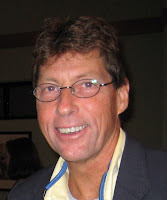by
Gary Fearon, Creative Director, Southern Writers Magazine
 |
| Have you considered adapting your own book? |
Film reviewer Leonard Maltin reminded his TV audience last week that faithfully adapting a movie from a book takes a special kind of talent. Indeed, translating one medium into another to adapt it into a new form of entertainment is a challenging task, but one which introduces a good story to millions who never knew about the book. It's a safe bet that the number of movies we've seen in our lives far outnumber the books we've read.
In a full-circle way, films often inspire moviegoers to read the original book on which their favorite flicks are based, so the two make a great partnership. In that spirit, I thought it would be enlightening to scan the list of some top movies which were adapted from the printed word. Do you remember seeing these books (prior to the movie coming out)?
JURASSIC PARK by Michael Crichton
THE PRINCESS BRIDE by William Goldman
SILENCE OF THE LAMBS by Thomas Harris
DELIVERANCE by James Dickey
DANCES WITH WOLVES by Michael Blake
A CLOCKWORK ORANGE by Anthony Burgess
FIELD OF DREAMS (based on
Shoeless Joe by W.P. Kinsella)
FORREST GUMP by Winston Groom
MILLION DOLLAR BABY (based on a short story by F.X. Toole)
In more recent years. Hollywood gave us:
THE SOCIAL NETWORK (based on
The Accidental Billionaires by Ben Mezrich)
WAR HORSE by Michael Morpurgo
WE BOUGHT A ZOO by Benjamin Mee
HUGO (based on
The Invention of Hugo Cabret by Brian Selznick)
WATER FOR ELEPHANTS by Sara Gruen
THE LINCOLN LAWYER by Michael Connelly

BEASTLY by Alex Flinn
I AM NUMBER FOUR by Pittacus Lore
JACK REACHER by Lee Child
CLOUD ATLAS by David Mitchell
SILVER LININGS PLAYBOOK by Matthew Quick
ONE FOR THE MONEY by Janet Evanovich
LIFE OF PI by Yann Martel
THE BEST EXOTIC MARIGOLD HOTEL by Deborah Moggach
LES MISERABLES by Victor Hugo
THE PERKS OF BEING A WALLFLOWER by Stephen Chbosky
THE HOST (in theatres now) - Stephanie Meyer, of
Twilight fame
Soon to come:
THE GREAT GATSBY
— the fourth screen retelling of the F. Scott Fitzgerald classic
THE SEVENTH SON
— based on Joseph Delaney's
The Spook's Apprentice
THE SECRET LIFE OF WALTER MITTY
— based on a short story by James Thurber
DOROTHY'S RETURN (2014)
— based on
Dorothy of Oz by Roger S. Baum
Worth noting is that some of the biggest blockbusters like
Harry Potter, The Chronicles of Narnia, Lord of the Rings, Twilight and
The Hunger Games were all series, and were all aimed at young adults. Does this say something about book-to-film potential? It definitely says that the younger generation is reading books, and I find that pretty encouraging.
In any given year, Hollywood translates dozens of books into film. As you're writing your next bestseller, it may not hurt to visualize being on the NY Times Best Seller list at the same time Meryl Streep accepts her Academy Award for playing your heroine.
Which reminds me, add THE DEVIL WEARS PRADA, JULIE & JULIA and THE BRIDGES OF MADISON COUNTY to that list.

































